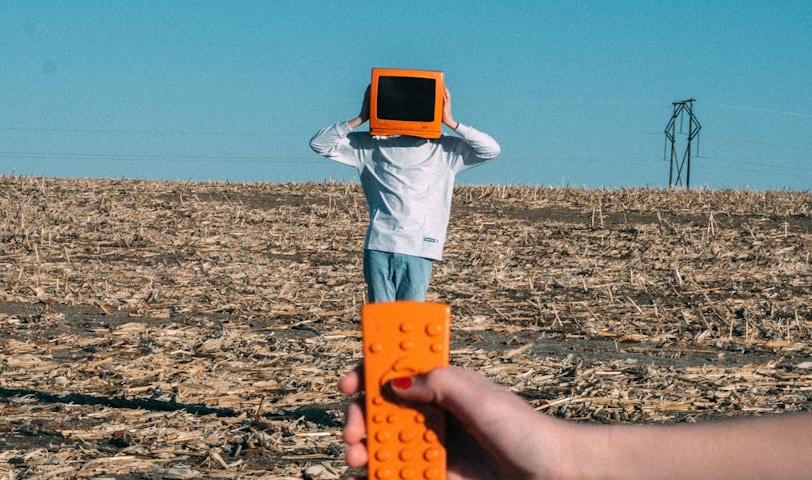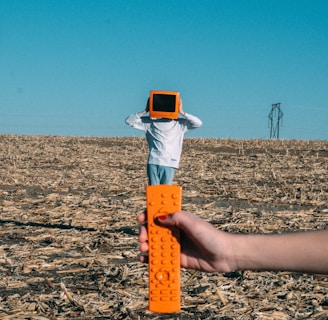Media Invasion.
The phrase "media invasion" can refer to various things, such as an overwhelming presence or influence of media in society, the intrusion of media into private lives, or the saturation of media coverage in a particular area or event. It often highlights the extensive impact or overwhelming presence of media in a certain context.
COMMUNICATION
12/31/20233 min read


Media Invasion.
The phrase "media invasion" can refer to various things, such as an overwhelming presence or influence of media in society, the intrusion of media into private lives, or the saturation of media coverage in a particular area or event. It often highlights the extensive impact or overwhelming presence of media in a certain context. This includes the dominance of digital platforms, TV, radio, newspapers, social media, and other forms of communication that shape opinions, disseminate information, and influence public perception.
It encompasses how media significantly impacts culture, politics, entertainment, education, and consumer behavior. The prevalence of media in society can bring both positive and negative consequences, influencing societal norms, shaping opinions, and sometimes leading to information overload or the spread of misinformation.
Media Invasion is Gradual.
The invasion of media in society has been a gradual and multifaceted process that has significantly altered the way individuals interact, receive information, and perceive the world around them. This evolution can be understood in several stages:
Print Revolution and Mass Communication (15th - 19th centuries):
The invention of the printing press by Johannes Gutenberg in the 15th century marked a pivotal moment in media history. It enabled the mass production of books, pamphlets, and newspapers, leading to increased literacy rates and the dissemination of knowledge and ideas. The printed press became a primary means of mass communication, shaping public opinion, spreading information, and facilitating social and political movements.
Rise of Electronic Media (19th - 20th centuries):
The 19th century saw the emergence of telegraphy, followed by radio and then television in the 20th century. These electronic mediums transformed communication by enabling real-time transmission of news, entertainment, and cultural content across vast distances. They became central to family entertainment, information dissemination, and advertising, further solidifying media's influence on society.
Digital Revolution and the Internet Age (Late 20th century - present):
The late 20th century brought about the digital revolution, marked by the advent of personal computers and the internet. The internet, in particular, has been a game-changer, enabling instant access to an immense amount of information. Email, websites, online forums, and search engines revolutionized how individuals interacted, shared ideas, and sought information.
Social Media and Interconnectedness (21st century):
The 21st century witnessed the rise of social media platforms such as Facebook, Twitter, Instagram, and YouTube. These platforms facilitated unprecedented levels of interconnectedness, allowing people to share opinions, experiences, and content on a global scale. Social media became a dominant source of news, entertainment, and social interaction, influencing public discourse, politics, and cultural trends.
Mobile Technology and On-Demand Media (21st century - present):
The proliferation of smartphones and mobile devices has further accelerated media invasion. With on-the-go access to a plethora of apps, streaming services, and social platforms, individuals can consume media anytime, anywhere. This shift to mobile devices has altered consumer behavior, entertainment preferences, and communication patterns.
Impact on Society.
The invasion of media has impacted nearly every aspect of society. It has altered the way people communicate, socialize, access information, consume entertainment, and participate in civic life. Media's influence extends to politics, education, business, culture, and personal relationships, shaping beliefs, behaviors, and societal norms.
However, while media invasion has brought immense benefits such as increased connectivity, access to information, and cultural exchange, it also poses challenges like misinformation, privacy concerns, and information overload. As media continues to evolve, its influence on society will likely continue to grow and transform how people live and interact in the years to come.
Contributing Factors to Invasion of Media.
The invasion of media into society has occurred gradually over time through technological advancements, societal changes, and the evolution of communication channels. Some key factors contributing to this invasion include:
Technological Advancements:
The development of the internet, digital devices, and social media platforms has drastically increased access to information. This accessibility has led to a surge in media consumption and interaction.
Globalization:
Media has become more accessible globally, transcending geographical boundaries. This globalization has allowed information to flow across nations and cultures more easily.
Consumer Demand:
People's increasing reliance on media for news, entertainment, and social interaction has fueled the expansion and diversification of media platforms. There's a constant demand for new content and quicker access to information.
Advertising and Commercialization:
Media has become a significant platform for advertising and commercial purposes. As such, it has expanded its presence to reach consumers in various forms, influencing consumer behavior and choices.
24/7 News Cycle:
The rise of the 24-hour news cycle, driven by television and online news outlets, has led to a constant stream of information, sometimes resulting in an overwhelming amount of content.
Social and Cultural Changes:
Changes in societal norms, values, and lifestyles have also contributed to the invasion of media. With the increasing integration of technology into daily life, people have become more reliant on media for information, entertainment, and social connection.
Overall, the invasion of media into society is a complex interplay of technological progress, societal changes, consumer demand, and the evolution of communication channels, resulting in a widespread influence on how information is consumed, shared, and perceived.
© 2026 Copyright Amna Sadaf
